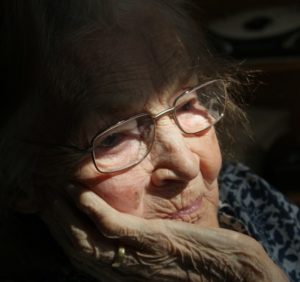Neighborly Home Care Explores Dementia
 Neighborly Home Care knows that few topics are more uncomfortable to consider or discuss than the potential of a person losing their mental faculties due to age, injury, illness, or a combination of factors. Unfortunately, the situation outlined is a reality for millions of Americans. As a company that offers specialized dementia care, we are exploring dementia and how the condition impacts those with a diagnosis of dementia and also their loved ones.
Neighborly Home Care knows that few topics are more uncomfortable to consider or discuss than the potential of a person losing their mental faculties due to age, injury, illness, or a combination of factors. Unfortunately, the situation outlined is a reality for millions of Americans. As a company that offers specialized dementia care, we are exploring dementia and how the condition impacts those with a diagnosis of dementia and also their loved ones.
Estimates vary considerably, but most believe that between 20-40% of all people over age 65 are suffering from some form of progressive mental handicapping.
The blanket term for this condition is dementia. According to the Alzheimer’s Foundation, “Dementia itself is not a disease, but a term used to describe symptoms such as loss of memory, loss of judgment and other intellectual functions.”
Part 1: Exploring Causes of Dementia
As home care providers for seniors and individuals with disabilities, we encounter many forms of cognitive impairment. As we are exploring dementia, we will focus first on the various causes and contributing risk factors for dementia in older people.
Disease
The most well-known causes of dementia are diseases, and several distinct illnesses have been found to lead to dementia.
Alzheimer’s
The most common cause of dementia, Alzheimer’s disease, involves clumps and tangles of proteins forming throughout the brain, inhibiting regular operation and leading to cognitive issues such as memory problems.
Frontotemporal Dementia (FTD)
Frontotemporal dementia (also known as FTD) is caused by the brain’s frontal lobe degenerating, affecting cognition, personality, and social behavior.
Lewy Body Dementia (LBD)
Lewy body dementia (LBD) is the second most common type of progressive dementia. The disease involves round protein structures, called Lewy bodies, actively displacing cells in the part of the brain related to thinking, memory, and motor control.
Vascular Dementia
Generally caused by strokes or blocked blood vessels, this form of dementia occurs due to a lack of blood flow throughout the brain. However, unlike other forms of dementia, medical professionals can halt vascular dementia if the underlying cause of the vascular problems is resolved.
Head Trauma
Dementia can be brought on by physical factors as well, such as traumatic brain injuries. For example, recent studies into head trauma among athletes in professional sports – such as football and boxing – have shown that repeated head trauma and resulting concussions can lead to long-term brain damage. However, in some cases, such trauma can be reversible, particularly if the person ceases the dangerous activity.
Contact Us
Are you a Home Care Worker?
Free Dementia FAQs eBook
The families we serve keep saying great things.
I just wanted to tell you how grateful we are that Neighborly Home Care stepped in & took over taking care of my Dad when we really needed it, no questions asked. Our caregiver has become part of the family and we know we can depend on her being there every day & taking great care of my Dad. He misses her when she’s not there!
— Daughter of an NHC Client
Genetics
Depending on their genetics, some people are more susceptible to dementia caused by disease than others. Alzheimer’s, Lewy Body, and other diseases have all been shown to have genetic links.
Other Causes
Since the brain is complex and vulnerable, many other factors can contribute. Some include poisons, vitamin deficiencies, medicinal interactions, nutritional disorders, and substance abuse such as cigarette smoking and alcoholism.
If you or someone you know is showing signs of dementia, seek help quickly. Schedule a doctor’s appointment and contact a home care agency such as Neighborly Home Care for advice on your options to help loved ones with dementia.
Part 2: Recognizing the Warning Signs of Dementia
 As part of our work providing elderly care in Pennsylvania and Delaware, we at Neighborly Home Care believe that people increasingly need to understand the causes and signs of dementia better. Those with aging relatives need help exploring dementia so that they know what to watch for and how to deal with cognitive decline if it occurs.
As part of our work providing elderly care in Pennsylvania and Delaware, we at Neighborly Home Care believe that people increasingly need to understand the causes and signs of dementia better. Those with aging relatives need help exploring dementia so that they know what to watch for and how to deal with cognitive decline if it occurs.
Common Indicators of Dementia
We previously presented an overview of the various conditions and behaviors which are known to bring about dementia. This section will be focused on exploring dementia’s most common warning signs.
Short-Term Memory Loss
Memory loss is often the most apparent sign of dementia and, therefore, one of the first that we notice in a person. Long-term memory is often unaffected for some, but someone with dementia will have increasing problems remembering small matters in their daily lives, like why they entered a room or where they were driving. Sometimes they also have problems learning new things because they are unable to retain the information.
Difficulty Communicating
Those with dementia will often lose language skills and may have difficulty remembering the right words for what they want to say. In some cases, their vocabulary and word use may regress, and they may have trouble understanding what others are saying to them.
Mood Shifts
Shifting moods are common with dementia. For example, there may be a marked change in personality in some cases. For example, individuals may become depressive or childishly impetuous. In addition, dementia can cause fearfulness and confusion, followed by impatience or anger directed at nearby friends or family.
Difficulty with Everyday Tasks
Balancing a budget, doing the laundry, or performing other aspects of an everyday routine can become very difficult for those with dementia. To be clear, we are referring to a cognitive inability to accomplish such tasks rather than physical issues.
Inability to Adapt to Change
Dementia often leads to mental inflexibility and an inability to deal with new circumstances. One significant sign of dementia in its early stages is a sudden desire to have fixed routines and the onset of stress or confusion if those routines are interrupted.
Some mental acuity loss is a normal part of aging. The difference between dementia and simple aging is severity. Dementia causes a loss of skills that directly and progressively reduce the ability of a person to take care of themselves day-to-day. These changes can cause fearfulness, worry, and frustration for those undergoing them. Seek help to give them the support they need.
Part 3: Advance Planning for Home Care, Medical and Legal Issues
 As part of exploring dementia, we will discuss how to deal with dementia’s presence in senior home care scenarios. Previously, we looked at causes of dementia, as well as recognizing common warning signs of dementia. We will talk about a highly uncomfortable topic for many people: planning for various medical and legal eventualities.
As part of exploring dementia, we will discuss how to deal with dementia’s presence in senior home care scenarios. Previously, we looked at causes of dementia, as well as recognizing common warning signs of dementia. We will talk about a highly uncomfortable topic for many people: planning for various medical and legal eventualities.
In theory, just about anyone – even those in good mental health – should do some thinking about end-of-life issues. However, for someone showing signs of dementia, the topic becomes more critical. In addition, their ability to make these decisions will degrade day-to-day. So the sooner such issues can be resolved, the better.
Understanding the Need for Exploring Dementia’s Effects and Planning
Many seniors may resist engaging in medical and legal planning, particularly if they are still trying to accept their growing dementia fully.
Generalizing scenarios is impossible, but a good approach is to frame the issue in terms of making life easier for both them and their family and giving them the power to make choices.
Even if seniors foresee many years ahead before dementia disables them, taking care of essential questions early can prevent hardship later.
End-of-Life Medical Issues

The medical questions to address are straightforward, and can be boiled down to some simple but tough questions:
- Where would they prefer to spend their final years, a residential facility or receiving home care?
- How aggressive should medical treatments be?
- How much quality of life would they trade for extra months or years? Do they wish to enact a living will?
- Do they have any religious or spiritual beliefs which are essential to consider?
When possible, these questions should be addressed in consultation with a doctor or medical lawyer, as some may require documentation, such as living wills.
Exploring Dementia’s Legal Issues
Legal planning mainly revolves around basic estate issues. Individuals should have a complete inventory of their assets made and should have an up-to-date will. In many cases, wishes for the handling of their final months/days or medical requests may also need to be put into legal documentation.
Probably the most critical decision is designating a family member with Power-of-Attorney. That is, giving a family member full authority to make decisions on the senior’s behalf if they become incapacitated and unable to answer for themselves. The selected person would then become the point of contact for doctors, as an example, to decide and approve medical treatments.
Part 4: Communicating with Loved Ones Who Are Experiencing Dementia

For many who have loved ones with dementia, one of the most painful and difficult issues is simply the matter of communication. How do you talk to them? How can you be sure you are being understood? And most importantly, how do you help them feel like they still have a voice and a say in their lives?
Communication is a complicated issue for anyone providing senior home care, whether professionally or as a family member. Best practices can vary a lot because each case of dementia is unique, and everyone is affected by dementia a little differently.
However, if you provide senior home care for a loved one with mental challenges, we have suggestions to make communication more manageable and less frustrating for everyone involved.
Tips for Communicating with Those Who Have Dementia
First and foremost, remember that these patients still have thoughts and opinions of their own, even if they may have trouble expressing them.
- Use a respectful tone of voice. Avoid talking down to them or speaking as you would to a child.
- Maintain eye contact, which shows respect as well as helps them focus.
- Avoid excluding them from conversations or talking about them when they are in the room without seeking their input.
- Have conversations in quiet rooms with a minimum of distractions.
- Face patients head-on, and always introduce yourself before initiating a conversation. Even if they know you, they may have trouble recognizing you at first.
- Ask “closed” yes and no questions rather than “open” questions. For example, “Would you like coffee or tea?” rather than “What would you like to drink?”
- Encourage nonverbal communication, such as pointing, if they are having trouble finding the right words.
- Explore different communication styles. A dementia patient with trouble speaking might be able to type or hand-write messages more effectively.
- Pause between sentences or phrases to give them time to digest and respond. Try silently counting to five before speaking again.
- Avoid criticizing or correcting them if you understand their meaning.
- Always remain calm and positive – avoid appearing angry or frustrated.
- Listen to the emotional content of their responses. Often, the most important aspect is that they know their feelings are being respected.
- Sometimes, what truly matters is just being present for them. When having communication troubles, simply share space, and provide emotional support with your company.
Part 5: Family Meetings and Elderly Care Support in Delaware County
 Elderly care in Delaware County can sometimes be complex, but perhaps never more so when dementia is a factor. As we have discussed previously, dementia creates significant hurdles to overcome, from recognizing the warning signs, adequately planning for the progress of the disease, and communicating with loved ones suffering from dementia.
Elderly care in Delaware County can sometimes be complex, but perhaps never more so when dementia is a factor. As we have discussed previously, dementia creates significant hurdles to overcome, from recognizing the warning signs, adequately planning for the progress of the disease, and communicating with loved ones suffering from dementia.
We will expand on that last point to discuss how the family can provide support through meetings and gatherings.
1. When To Hold Meetings
A family member may have many reasons for holding a family meeting and exploring dementia-related issues. Just a few of these include:
- Discussing the latest reports from the healthcare provider.
- Conferring about day-to-day care needs and the effectiveness of current treatments.
- Talking about financial concerns.
- Creating to-do lists of necessary actions.
- Future planning for such issues as estate-related decisions.
- Providing emotional support and discussions about the disease and its effects on the family.
Even if the subject is difficult to discuss, such meetings are the best way to cover them while giving everyone a voice. Ignoring problems relating to dementia will only make things worse.
2. Who Should Attend?
Attendance will vary from family to family, depending on who is closest to or most involved in elderly care. However, one person who should always be included is the dementia patient. Failure to include the individual can cause depression or anger in dementia patients, making them feel that they have no say in their own life.
Remember that commonly, dementia patients have minds which are working better than their ability to express themselves. Treating them like invalids will be extremely demoralizing. When in doubt, assume they do understand what is happening around them.
3. Holding the Meetings
These family meetings can be very emotionally charged. As a precaution, have a level-headed person as a chairperson/facilitator. If a close family friend might have a more objective outlook, consider bringing them in as a “referee.”
Another key aspect is to focus on “I statements.” As in saying, “I think this should happen” rather than saying “You should do this.” The goal of these meetings should be finding a common consensus, which becomes very difficult if everyone is pointing fingers or issuing orders.
Part 6: Home Care Providers Offer Tips on Ensuring Your Loved One Is Kept Safe

Being a Main Line home care provider for a loved one with dementia is no easy task. From knowing the warning signs to keeping your family involved in the caregiving, caregivers have many considerations to consider. However, without a doubt, one of the foremost concerns is keeping your loved one safe.
Dementia, of course, is a disease of the mind and directly affects the decision-making, problem-solving, and motor skills of those who are afflicted. As a home care provider, you need to do everything possible to keep your loved ones safe from elements in their environment that could hurt them.
1. Safety-Proof the House
Put away or lockdown any objects which might be unsafe; this could include car keys, scissors, knives, and other dangerous objects. Also, consider disabling potentially hazardous appliances, such as removing the control knobs from stoves.
2. Police the Exits
If your loved one is prone to wandering, you need to keep them away from exits. Consider installing extra locks for which only you have the keys. Also, consider installing motion detectors or electronic door chimes.
3. Avoid Fire Sources
Beyond putting away dangerous objects, pay attention to anything which might be a source of fire and be sure that nothing like lighters are left lying around. This precaution is especially important when someone is using oxygen.
4. Minimize Use of Stairs
Stairs can be treacherous for seniors, and those with dementia have an additional risk of falling due to decreased ability to think or move properly. When possible, reorganize the home so that everything the senior needs is on the ground floor and make sure clutter or trip hazards are picked up.
5. Add Protection to Bathrooms
Safety rails can be a significant help in bathrooms for people with dementia. Put them in the shower, near the toilet, and possibly near the sink(s) as well. Also, lay down rubber non-slip mats throughout these rooms to minimize the chance of falls due to slick flooring.
6. Know Medications
Always keep up with what medications are being used, as well as interactions and side effects. Likewise, always have the doctor’s number available on speed-dial. Be ready to report any behavior that seems abnormal.
Contact Neighborly Home Care to Begin Exploring Dementia Care Options
Neighborly Home Care employs professional, skilled, and compassionate caregivers in Delaware and Pennsylvania and the surrounding area who strive to make life as fulfilling and happy for seniors as possible. For a consultation about exploring dementia or information about how we can help provide professional care to senior loved ones, call 610-658-5822 today.